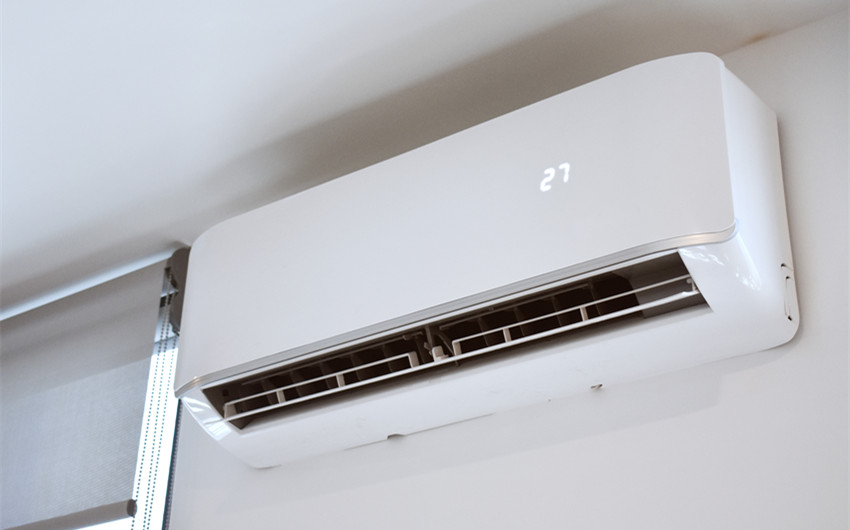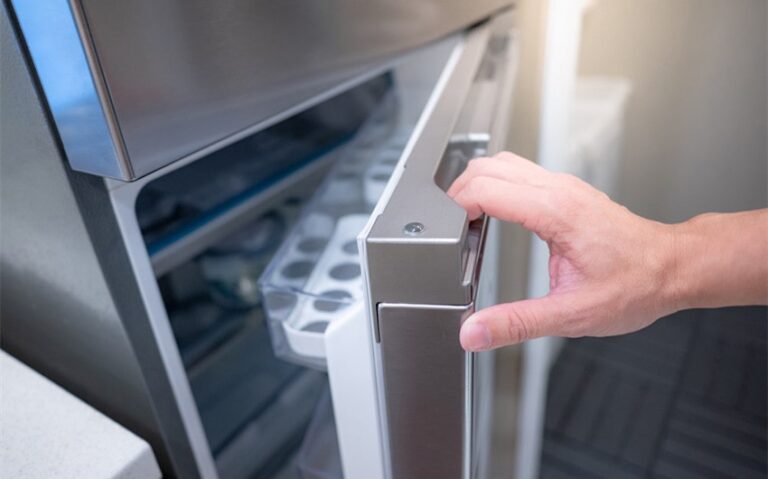Air Conditioner Brands to Avoid: Don’t Waste Money on These Models
When you’re investing in a new cooling system, the last thing you want is to end up with a noisy, unreliable, energy-hogging unit that breaks down before it should. Choosing the right AC is about more than just price or appearance—it’s about longevity, serviceability, and how well the system performs when you need it most. That’s why knowing which air conditioner brands to avoid can save you from frustration, repairs, and replacement costs down the line.
A faulty or poorly designed air conditioner doesn’t just waste your money—it can also leave you stuck during a heatwave, waiting for repairs or fighting with customer service. Whether you’re replacing a worn-out unit or buying one for a new home, it’s essential to know which brands have a history of problems and which ones can be trusted. This article will walk you through the most commonly flagged AC brands, explain why they fall short, and guide you toward better, more reliable alternatives.
Air Conditioner Brands to Avoid
Over the years, several air conditioner brands have earned less-than-stellar reputations. These issues may stem from mechanical breakdowns, subpar parts, short warranty terms, poor customer service, or a combination of all four. While some of these brands may look attractive due to low prices or promotional offers, it’s often what’s under the surface that causes long-term regret. Let’s take a closer look at the AC brands you’ll want to skip—and why.
Goodman
Goodman is one of the most frequently mentioned brands when it comes to air conditioners to avoid, despite being one of the best-known budget options in the HVAC world. On paper, Goodman products seem like a solid deal—they’re affordable, widely available, and come with reasonably good efficiency ratings. But once you start looking at long-term performance and owner feedback, the picture gets a lot murkier.
One of the biggest issues with Goodman units is compressor failure. The compressor is the heart of your air conditioning system, and when it goes, you’re looking at a major repair or full unit replacement. Many Goodman units experience compressor issues far earlier than expected—sometimes even within five years. While their warranty coverage is decent, many customers have reported difficulties actually getting service or replacement parts in a timely manner.
Goodman air conditioners are also known for being noisy, with many units producing more operational hum and rattle than competing models. That’s not great if you’re placing your unit near a bedroom or home office. While Goodman may offer an appealing price tag up front, the long-term costs in reliability and repair headaches make it a brand worth avoiding.
York
York is another brand that often comes up in discussions about which air conditioners to avoid, primarily due to mechanical reliability issues and inconsistent manufacturing quality. York’s systems are frequently flagged for breakdowns involving the blower motor, capacitor, or evaporator coil—all critical components of a well-functioning system.
One major problem with York units is their lack of consistency. Some units seem to work fine for years, while others develop issues within the first 12–24 months. This inconsistency may be the result of quality control challenges, especially as many of York’s budget models are outsourced or manufactured using cost-cutting materials.
Customer service is also a sticking point. York owners often report long wait times for warranty support, slow technician response, and difficulty obtaining parts, even for relatively new units. If something breaks, you might be left without cool air for days—or even weeks—during the hottest part of the year.
Although York has been a trusted name in HVAC in the past, recent consumer feedback and service issues make this a brand you might want to avoid unless you have a highly rated local installer offering strong post-sale support.
Frigidaire (HVAC Products)
You might recognize Frigidaire as a household name when it comes to appliances, but when it comes to HVAC, they’ve struggled to compete with top-tier brands. Frigidaire-branded air conditioners, particularly central air models, are known for short lifespans, uneven cooling, and frequent repairs.
One of the biggest complaints among Frigidaire AC owners is inconsistent temperature control. Some rooms may be cold while others are warm, and the unit itself may struggle to maintain a steady indoor temperature, especially during extreme heat. These performance issues are often linked to design flaws in the blower system or poor sensor calibration.
Another commonly reported issue is excessive noise. Frigidaire air conditioners are louder than average, with many users complaining of buzzing, rattling, and clanking sounds. For homeowners looking for peace and quiet, that’s a dealbreaker.
Lastly, customer service and warranty handling don’t inspire much confidence. Repair times can be long, and finding a technician familiar with Frigidaire HVAC systems can be surprisingly difficult. While their kitchen appliances may still be solid, Frigidaire’s air conditioners are best avoided.
Lennox (Budget Models)
Lennox is a bit of a mixed bag. Their high-end systems are often praised for efficiency and performance, but their budget models have been a source of frustration for many homeowners. The biggest issue across the Lennox lineup is the difficulty of sourcing replacement parts—especially for older or entry-level systems.
Lennox uses a number of proprietary parts, which means you often can’t use generic or third-party replacements. That drives up repair costs and often leads to longer wait times when something goes wrong. And unfortunately, things do go wrong. Budget Lennox models are known to suffer from leaky coils, poor fan motor performance, and electrical malfunctions.
The brand also has a reputation for expensive repairs. Even if the problem seems minor, the part and labor cost through a certified Lennox dealer can be significantly higher than other brands. If you’re considering a Lennox system, be very cautious about choosing their lower-end models.
Airtemp
Airtemp air conditioners are primarily found in rental units or budget housing projects, and for good reason: they’re cheap. But like many bargain-bin brands, Airtemp units tend to underperform, break down early, and leave you with limited options for service.
Customers often cite issues with low efficiency ratings, meaning the unit drives up your electricity bill while delivering underwhelming cooling. Others report problems with compressors freezing, inconsistent thermostat communication, and general build quality concerns.
Support is minimal, and parts availability can be a serious issue. Many HVAC technicians simply don’t recommend Airtemp units because they’ve seen too many failures too soon. Unless your budget is extremely limited and you’re okay with the risk of early replacement, Airtemp is a brand worth avoiding.
Best Air Conditioner Brands to Consider Instead
Now that we’ve covered the air conditioner brands to avoid, let’s look at a few names you can count on. These brands consistently earn high marks for durability, energy efficiency, warranty coverage, and customer satisfaction. While they might cost more upfront, they’ll almost always save you money and stress over time.
Trane
Trane is one of the most trusted names in the HVAC industry. Known for its exceptional durability and engineering, Trane units are built to last and require fewer repairs over their lifespan. Their systems are also highly energy-efficient, helping you save on utility costs year after year.
Customer support is solid, and parts are readily available through a vast service network. If you’re looking for long-term value and peace of mind, Trane is a top-tier choice.
Carrier
Carrier has been in the HVAC business for over a century, and they continue to lead the industry in innovation and quality. Their air conditioners are known for quiet performance, energy savings, and cutting-edge features like smart thermostat compatibility.
Carrier also offers one of the best warranties in the business, and their systems are widely serviced, meaning you won’t have trouble getting help when you need it.
Rheem
Rheem offers an excellent balance of performance, affordability, and reliability. Their AC units are well-designed, with smart diagnostics and energy-saving technology. Rheem’s customer support is also above average, and most technicians are familiar with their systems.
Rheem systems tend to be easy to maintain and affordable to repair, making them a smart choice for homeowners who want long-lasting performance without breaking the bank.
Bryant
Bryant is often considered a slightly more affordable cousin to Carrier—since they’re manufactured by the same parent company. Bryant air conditioners share many of the same features and build quality as Carrier models but at a slightly lower price point.
With a solid track record, good warranty options, and plenty of service techs familiar with the brand, Bryant is a reliable choice for many households.
American Standard
American Standard units are praised for quiet operation, durability, and value. They’re similar to Trane in terms of build quality and reliability, often using the same internal components. American Standard also earns high scores for customer satisfaction and is known for having relatively low failure rates across its product lineup.
If you want a dependable mid-range unit that performs like a high-end model, American Standard should be on your shortlist.

